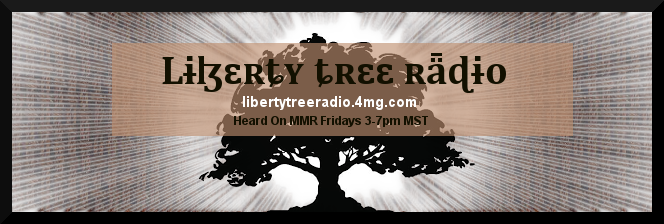Even more bizarre than the Big Bang, hyperspace, space-time curvature, UFO skepticism, ghost skepticism, race denial, human-nature denial, and falsificationism, if that's possible, is the farce of phonetics. Certain vowel sounds are grossly misrepresented in phonetic transcription: in French it is the short a (æ) as in the English 'pan' (mostly as the French letter a), the short i (ɪ ) as in the English 'pin' (mostly as é, -er, and -ez), the short u (ʌ) as in the English 'pun' (the French letter o of many words), and the e (œ)(no English equivalent)(often the final e); in Portuguese it is the short a and the short i; and in English the long o (ow) as in 'cone' is transcribed as a diphthong which doesn't even exist and isn't even pronounceable. As a rule the short a of French is the a at the beginning or middle of a word and without a circumflex. In France, however, even the â is pronounced short. The word final a is usually said as /a/ (the medial a, which is erroneously said to be short) or /ə/.
No reason has ever been given for these bizarre transcriptions. And most people follow suit like trained seals or automatons. What makes it so bizarre is not only the bizarreness of the phenomenon itself, but also that there are no dissenters. Only George Mason U. has an IPA chart for French on its web site which includes the ash (æ). I have contacted 4 linguists on the matter of French and 2 responded but did not answer the question of why they do it, and 2 did not respond at all. They can't answer because there is no justification for it. Some might claim that the French ones are dialectal differences, but not at all, they are as universal as the long o is in English. So phoneticists, even though they pronounce the same sounds themselves and in those languages, are apparently unable to tell the difference between /a/ and /æ/, /e/ and /ɪ /, /ʌ/ and /ɔ/, and /œ/ and /ə/, and are unable to recognize the long o of English!
There are similarly bizarre phonetics in English besides the ignorance of the long o. Trager and Smith in '51, Daniel Jones in '56, and Grimson in '62 transcribed the e of 'set' as /e/ (as in 'sate'!), and Trager and Smith in '51 and Jones in '56 transcibed the u of full as /u/ (as in 'fool'!), and the i of 'sit' as /i/ (as in 'seat'!)(Crystal, An Encyclopedic Dictionary of Language and Languages, 1987, p. 153). Crystal says they are pronounced the same in both British and American English and the differences in transcription are due to the different aspects of the way the vowels are produced, which is obviously not at all true. Antilla (Historical and Comparartive Linguistics, 1989, p. 214-15) and the pocket English-French Larousse, from 1981, also transcribe the ɛ as e and the ɪ as i for English. And the Dictionnaire Français-Anglais English-French by Larousse Chambers transcribes the ɛ as e for English. These transcriptions are fortunately not universal but seem to be widespread.
And Ruhlen (A Guide to the World's Languages, Vol. 1, 1991, p. 47) states that Grimm, known also for his fairy tales, thought the German word ''Schrift'' contained 8 sounds, when, of course, it contains only 5. The bizarreness continues.
We can't expect Anglophones to pronounce sounds that don't occur in their language or which are not in the same position in the word, so, for instance, they say the final é like /e/ (which coincides with the usual and bizarrely false transcription or is transcribed purposely to correspond with it) because such a sound (ɪ) in the word-final position does not exist in English, but the short a is as widespread in N. Am. English as it is in French and usually in the same positions in the word. They also say the French ss as z, when it is usually said as an s in English and is always said as an s in French. So these 2 mispronunciations are unexplained. Hence Montréal is mispronounced by Anglophones, but Laval is properly pronounced by Quebec Anglophones. The explanation for this may be that the former dates back to the 17th century and has a large Anglophone minority and was for a time majority Anglophone, while the City of Laval was established only in 1965 and was always overwhelmingly Francophone.
I have included a video which includes the pronunciation in actual discourse. (See also the U. of Picardie web site, which has the correct pronunciation in the audio examples and the flagrantly erroneous transcription as well).
No reason has ever been given for these bizarre transcriptions. And most people follow suit like trained seals or automatons. What makes it so bizarre is not only the bizarreness of the phenomenon itself, but also that there are no dissenters. Only George Mason U. has an IPA chart for French on its web site which includes the ash (æ). I have contacted 4 linguists on the matter of French and 2 responded but did not answer the question of why they do it, and 2 did not respond at all. They can't answer because there is no justification for it. Some might claim that the French ones are dialectal differences, but not at all, they are as universal as the long o is in English. So phoneticists, even though they pronounce the same sounds themselves and in those languages, are apparently unable to tell the difference between /a/ and /æ/, /e/ and /ɪ /, /ʌ/ and /ɔ/, and /œ/ and /ə/, and are unable to recognize the long o of English!
There are similarly bizarre phonetics in English besides the ignorance of the long o. Trager and Smith in '51, Daniel Jones in '56, and Grimson in '62 transcribed the e of 'set' as /e/ (as in 'sate'!), and Trager and Smith in '51 and Jones in '56 transcibed the u of full as /u/ (as in 'fool'!), and the i of 'sit' as /i/ (as in 'seat'!)(Crystal, An Encyclopedic Dictionary of Language and Languages, 1987, p. 153). Crystal says they are pronounced the same in both British and American English and the differences in transcription are due to the different aspects of the way the vowels are produced, which is obviously not at all true. Antilla (Historical and Comparartive Linguistics, 1989, p. 214-15) and the pocket English-French Larousse, from 1981, also transcribe the ɛ as e and the ɪ as i for English. And the Dictionnaire Français-Anglais English-French by Larousse Chambers transcribes the ɛ as e for English. These transcriptions are fortunately not universal but seem to be widespread.
And Ruhlen (A Guide to the World's Languages, Vol. 1, 1991, p. 47) states that Grimm, known also for his fairy tales, thought the German word ''Schrift'' contained 8 sounds, when, of course, it contains only 5. The bizarreness continues.
We can't expect Anglophones to pronounce sounds that don't occur in their language or which are not in the same position in the word, so, for instance, they say the final é like /e/ (which coincides with the usual and bizarrely false transcription or is transcribed purposely to correspond with it) because such a sound (ɪ) in the word-final position does not exist in English, but the short a is as widespread in N. Am. English as it is in French and usually in the same positions in the word. They also say the French ss as z, when it is usually said as an s in English and is always said as an s in French. So these 2 mispronunciations are unexplained. Hence Montréal is mispronounced by Anglophones, but Laval is properly pronounced by Quebec Anglophones. The explanation for this may be that the former dates back to the 17th century and has a large Anglophone minority and was for a time majority Anglophone, while the City of Laval was established only in 1965 and was always overwhelmingly Francophone.
I have included a video which includes the pronunciation in actual discourse. (See also the U. of Picardie web site, which has the correct pronunciation in the audio examples and the flagrantly erroneous transcription as well).



















» What Music Are You Listening To ?
» WRATH OF THE GODS/TITANS
» Livin Your Best Life
» Why are we here?
» CockaWHO!?
» Scientists plan DNA hunt for Loch Ness monster next month
» OMF STATE OF THE UNION
» Earth Intelligence